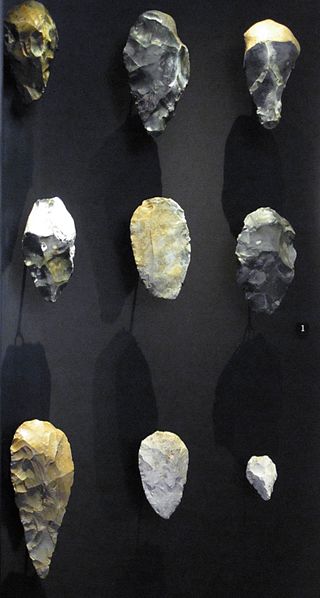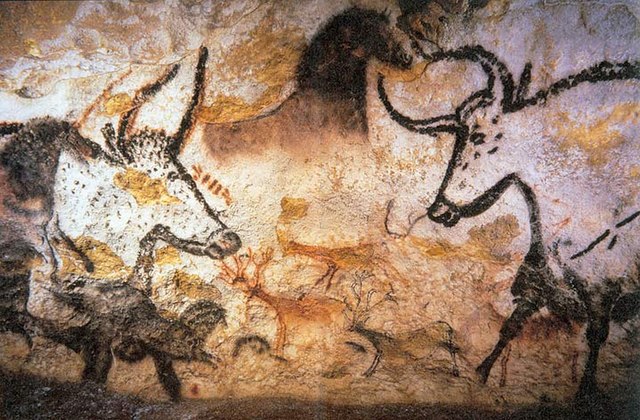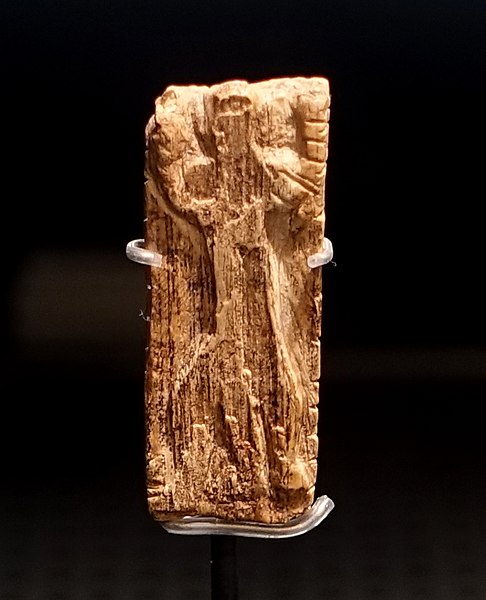The Atlantic Bronze Age is a term that has never been formally defined. Some take its meaning to be a label for the period spanning approximately 1300–700 BC in Britain, France, Ireland, Portugal and Spain; that is, the Atlantic coast of Europe. Others assign it to a cultural complex of the Bronze Age period in prehistoric Europe that is defined by the culture prevalent at this time and location.
A Bronze Age gold hoard: Tesouro de Caldas, Galicia, Spain
Gold torque from Stretham, England
The Caergwrle Bowl, Wales, c. 1300 BC
Casco de Leiro, Galicia, Spain
Prehistoric Europe refers to Europe before the start of written records, beginning in the Lower Paleolithic. As history progresses, considerable regional unevenness in cultural development emerges and grows. The region of the eastern Mediterranean is, due to its geographic proximity, greatly influenced and inspired by the classical Middle Eastern civilizations, and adopts and develops the earliest systems of communal organization and writing. The Histories of Herodotus is the oldest known European text that seeks to systematically record traditions, public affairs and notable events.
Tarxien Temples, Malta, around 3150 BC
Acheulean hand axes and hand axe-like implements, flint, 800,000–300,000 BC
Lascaux cave painting, Magdalenian, 15,000 BC
Adorant from the Geißenklösterle cave, Aurignacian, 42,000 to 40,000 BC








